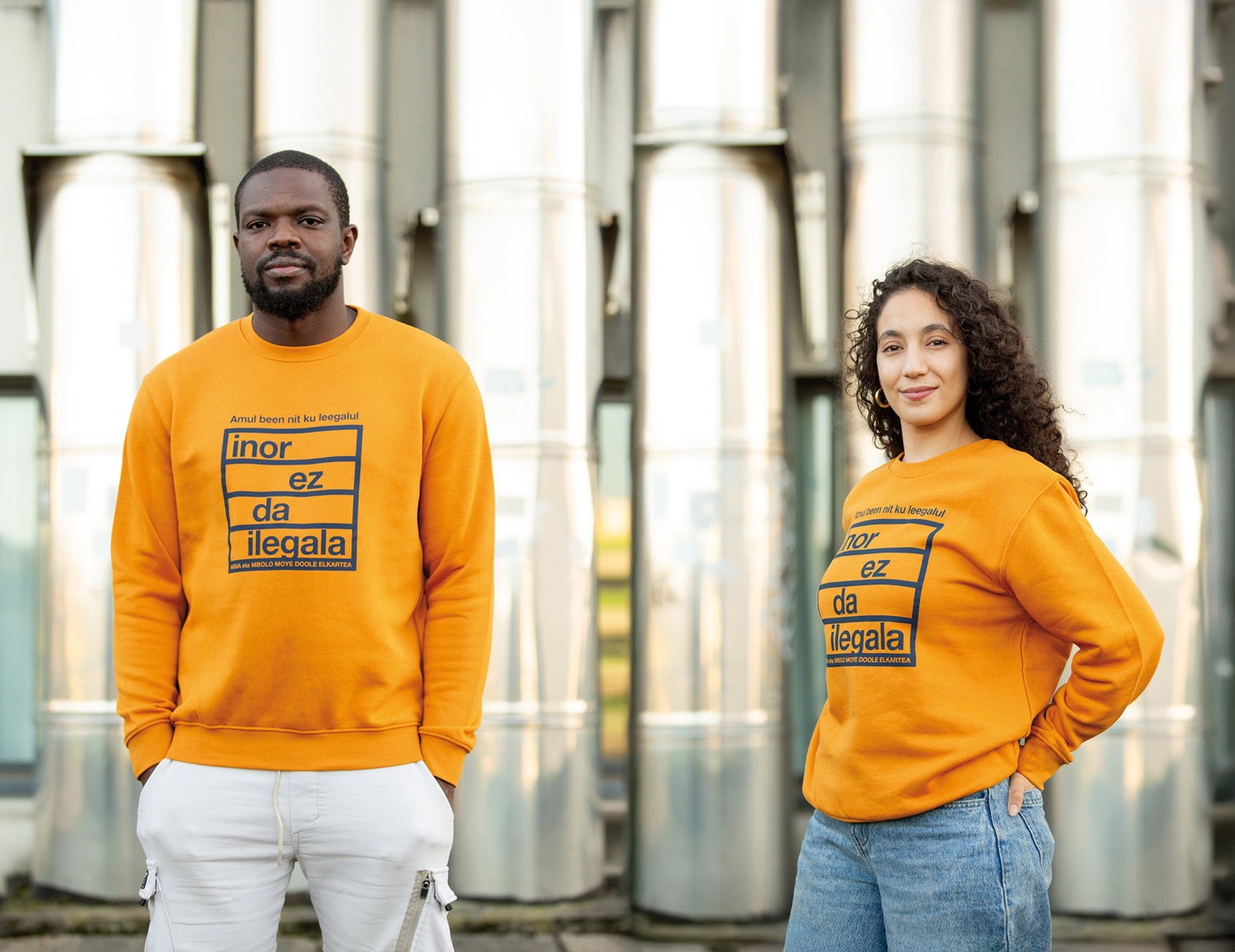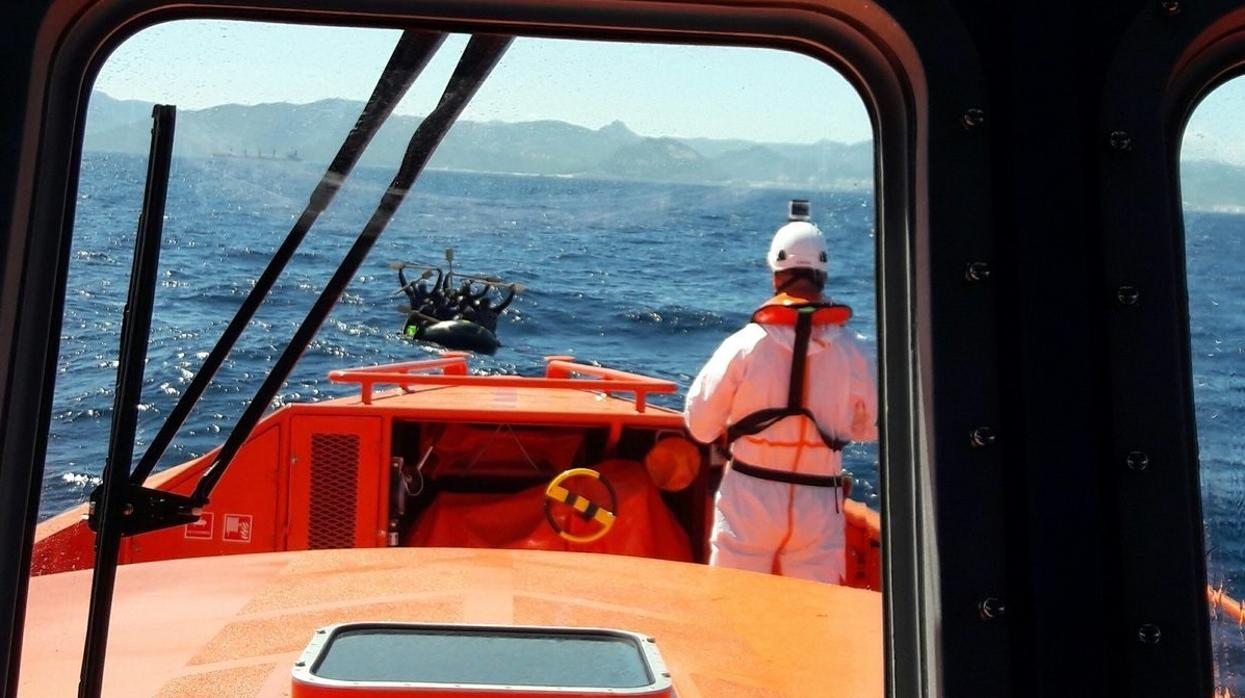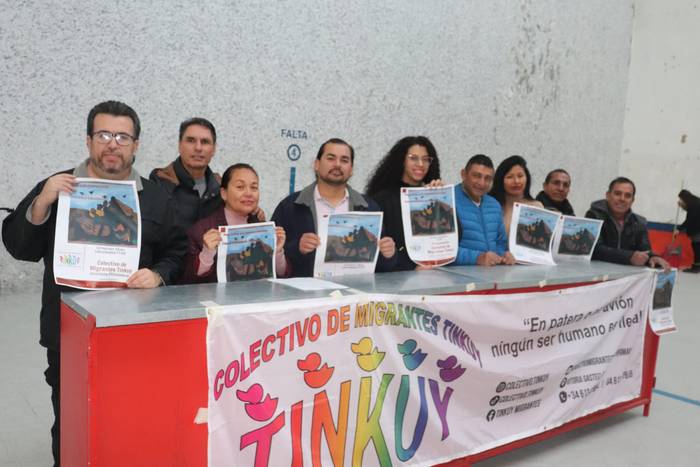"We lost everything we had, we didn't go back to where I was."
- Before the outbreak of the war, Syria had a population of 20 million. Today, more than half of the population is displaced either in different areas of Syria or abroad. We have spoken to three Syrians who have come to Navarra, to learn about the reality that they live here, on the one hand, to talk about what is happening in Syria, on the other.

Like six million other citizens, Abdelkader and Abdulrazak left the border with Syria behind the Idris brothers. They were born in the city of Homs and for almost three years lived in the Mutilva of Navarra, along with their parents and two brothers. These are refugees coming directly from Turkey, victims of the war that has begun since the Arab Spring.
How do they feel in Navarre and what news do the relatives who have stayed in Syria give them?
Abdelkader: Here we are very good, we live very quiet. People are a little closed, but they treat us with kindness.
Abdulations: Grandma and two aunts stay in Homs. They live in one of the few neighborhoods that has been left safe from bombs. Because of Bashar Al Assad, most of our neighbors have picked up the suitcase and left, and they're afraid to come back. We are afraid of the regime and we have lost everything we had there, our house has been torn apart, we have nowhere to return. Homs has gone from being Syria's third largest city to losing two-thirds of its inhabitants, and bombs have shattered its buildings and neighborhoods.
Why, among other things, have they been committed to Homs?
Abdelkader: Al Assad's family has been in power for 40 years, and ours is not a kingdom, but a republic. We wanted a change from Homs and started a revolution against the regime, because our president was a tyrant. Egypt’s Arab Spring also came to our country, but its allies, mainly Russia, China and Iran, gave it their military support. If we rebelled, it wasn't because we were poor or because we were out of work, but because we wanted freedom and democracy. Al Assad, who wanted to eliminate the protests, launched indiscriminately against the neighborhoods they were in, using all kinds of weapons and making the innocent disappear. It has attacked the people, who continue to fight for permanence in power. Only the neighbours on their side have got rid of the bombs. In the centre of Damascus, for example, you will not find collapsed buildings.
Our people welcomed many refugees in Iraq, Palestine and Lebanon and now we are the refugees. As a young person I had the idea of coming to Europe, but to do tourism, not as we have come.
Abdulations: But we didn't put refugees in closed camps. They lived with us, worked like us, ate at our very table ...
Abdelkader Idris: "The Syrian president wants to give arguments to the international community, saying that he is fighting the terrorists," he said. But who created those groups? They want to distort the vision of Islam and give excuses to the government to crush the revolution."
The Syrian president says he is fighting terrorism.
Abdulations: That is not true. Al Assad is one of the main promoters of terrorism.
Abdelkader: The US President wants to give arguments to the international community so that it does not move from terrorists in Afghanistan. But who created those groups? The Government itself, the United States and England. What they are trying to do is to distort the vision of Islam and give excuses to the government to crush the revolution. We must not forget that the Isis group kills Muslims. They obey, rather than religion, the authorities at the top.
Abdulations: There is a great diversity in Syria. We have different religions and cultures, it's a secular country. We have Christians, Jews or Kurds, and we lived together without any problems until the beginning of the war. But the powerful countries of the world have a lot of interest in us.
How do you manage the memories of what you have lived there?
Abdelkader: It's very difficult. We have lost friends and family. And not only that, we have also lost the house, the neighborhood, the car... We've seen, live, how they bombarded everything.
Abdulations: My father had a truck company with other guys. When the siege of Homs broke out, the army seized all our trucks and destroyed them. We were left with nothing. Now his father is 62 years old, he has the life of driving trucks, but here he cannot get the driver's license, because for a Spanish student it is very difficult to pass the theoretical exam. The licence is approved in France and in Germany it can be made in Arabic. We do not want to rely on subsidies, we want to work.
If they had decided to stay there, what situation would they be in today?
Abdelkader: If we had stayed in our neighborhood, we'd be dead. Assad controls almost the entire country, but the bombings are continuing, such as Idleb or Aleppo. They are still preparing barrels of dynamite and throwing from helicopters or planes knowing that they are going to kill the innocent.
"Refugees have a lot of trouble finding a home or a
job" Abdul Razak Alyusuf made the section of the sea that goes from Turkey to Greece on a plastic boat. He thought about the kids he could help if the boat was going to sink while they were at sea, and he couldn't take that tension out of his head. “Still, when I go to Villavesa [on the bus], I choose which child I will rescue. I can't get that thought out of my head."
He is a member of the Refugees in March group. He was born in Aleppo and has chosen to stay in Pamplona/Iruña. He perfectly dominates Spanish and knows loose words in Basque. He has recently been the father of a child and knows firsthand the situation of refugees in the area.
He told us that in Navarre there are between 30 and 40 refugees from Syria. The figure is not accurate, as many go to other countries with family networks, to Germany or to countries in Northern Europe: “In Pamplona, refugees live quite well, but some leave out because we have many problems when it comes to finding a home or a job. We are travelling to other European countries in order to live a normal life. We are not useless, we want to work.”
The refugee reception programme is managed by the Red Cross and the Spanish Refugee Assistance Committee CEAR, and consists of three phases of one and a half years of total duration. In the first semester, they live in the homes of the above-mentioned entities, in groups of families or with refugees from other backgrounds, receiving a small amount of financial aid. It says that the aid is insufficient: “They give us 290 euros for four people. With this we can only pay the expenses for half a month. And what do we do another fifteen days?”
Abdul Razak: -Still, when I go to Villavesa, I'm looking for which child I'll rescue. I can't get that thought out of my head.
In the next two phases of the programme, refugees have to find their home in order to live autonomously. However, along the way they encounter many obstacles: “Although the workers of these two organizations help us a lot, we have a weight of war on our backs, in six months we do not master enough the language, we do not have a work contract to teach it anywhere, when speaking we can see the Arab melody and the bosses of the floors do not like it... It is really difficult to find stability. When I was looking for a floor, they called me over the phone and cut me right away when I heard my language.
Abdul Razak is clear that the issue of refugees has been fashionable: “Getting out of a selfie with a refugee or going to a refugee camp has been a fashion. In my case, when I got here my friends went all over me, but now, where have most of my friends gone? They have disappeared. They call me when you have to give a lecture, but it's already there. In the media we hear that one institution or another helps refugees, but in reality that is not the case. In Navarre, for example, the Help-Na group, powered by fire fighters, is one of the few groups that accompany us.”
Finding a house is an arduous task, and Razak calls on the ships that have their houses empty to rent them to the refugees. Concerning employment, it is considered that the Government should facilitate the approval of titles: “If many of the refugees who come here have had work, but for the natives it is difficult to get a job, imagine the language for a refugee who does not master well and has no approved title. Unlike other European countries, the driving licence also goes the same, our driving licence is worthless here.”
.jpg)
The poor management of the Valencian cold drop has led to a change in adverse meteorological alerts, as shown in the first season of "winter". Faced with the threat of rivers overflowing in Hego Euskal Herria, the indications for protection came along several paths, since no... [+]
Gasteizko Errotako (Koroatze) auzoan izan diren manifestazio "anonimoek" kolokan jarri dute auzokoen arteko elkarbizitza. Azalera atera dituzte ere hauetan parte hartu duten partidu politiko batzuen eta beste kide batzuen izaera faxista eta arrazista.
I started to mentally write my article while I was in the car. I usually have the best ideas in the car while driving alone. I'm going to Bilbao, to the Arriaga theater. The Artedrama company is today staging the Miñan play. It's Friday, October 25.
Approaching the atrium of the... [+]









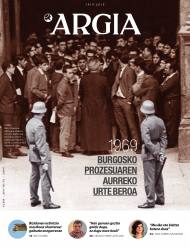

-(1).jpg)
.jpg)


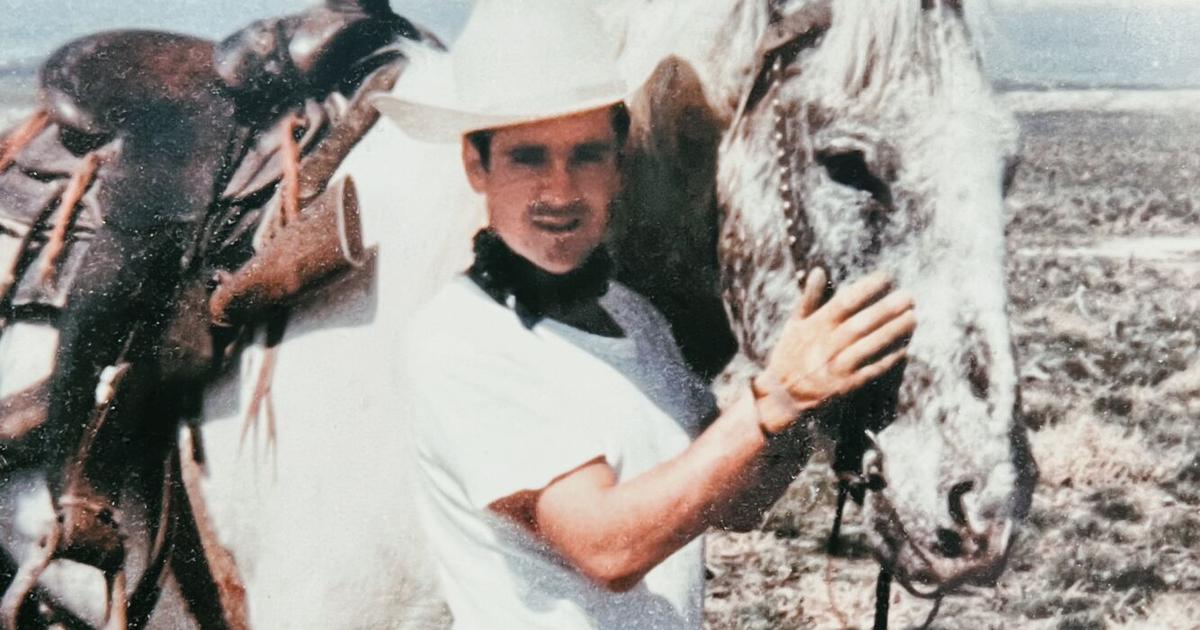
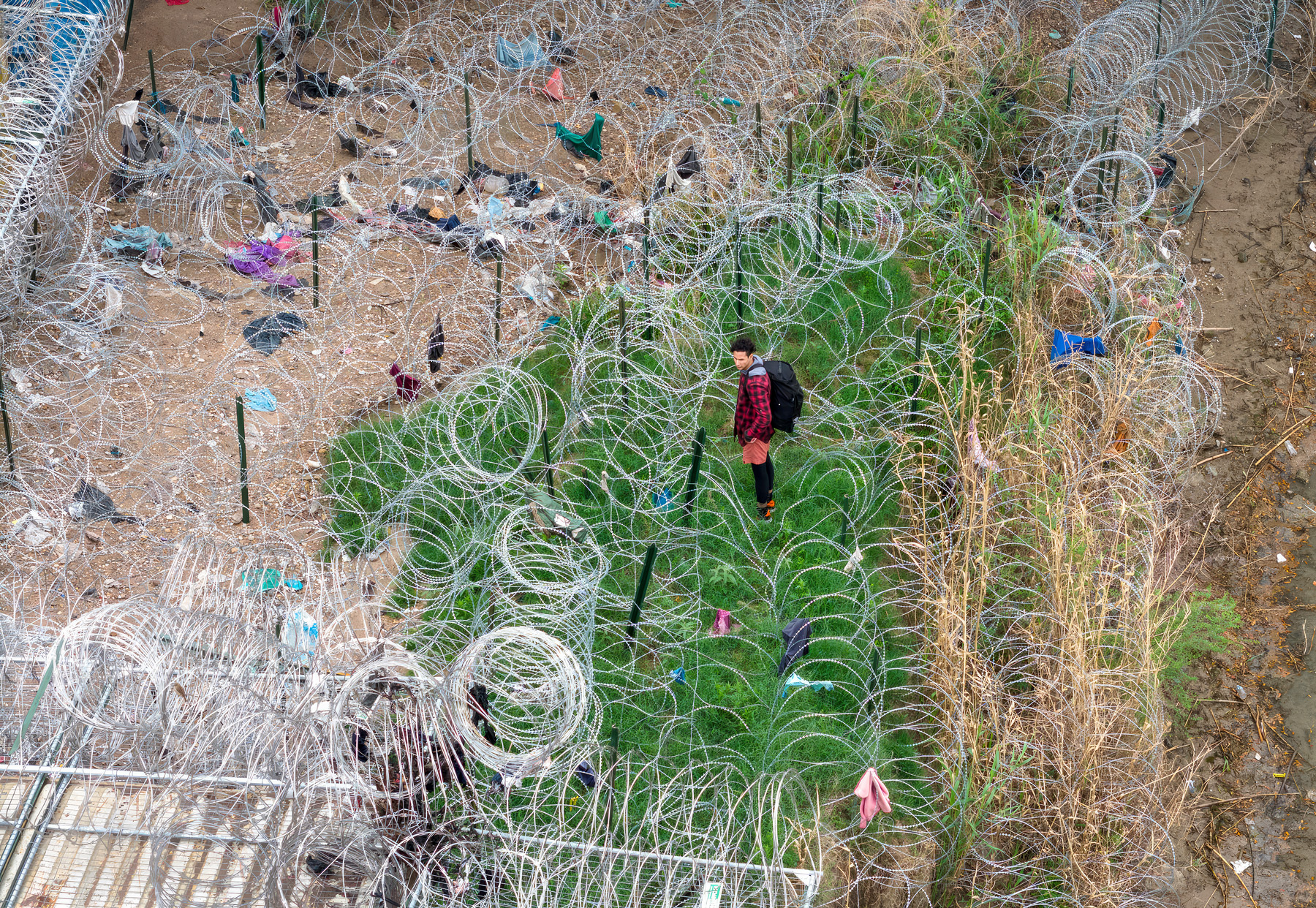

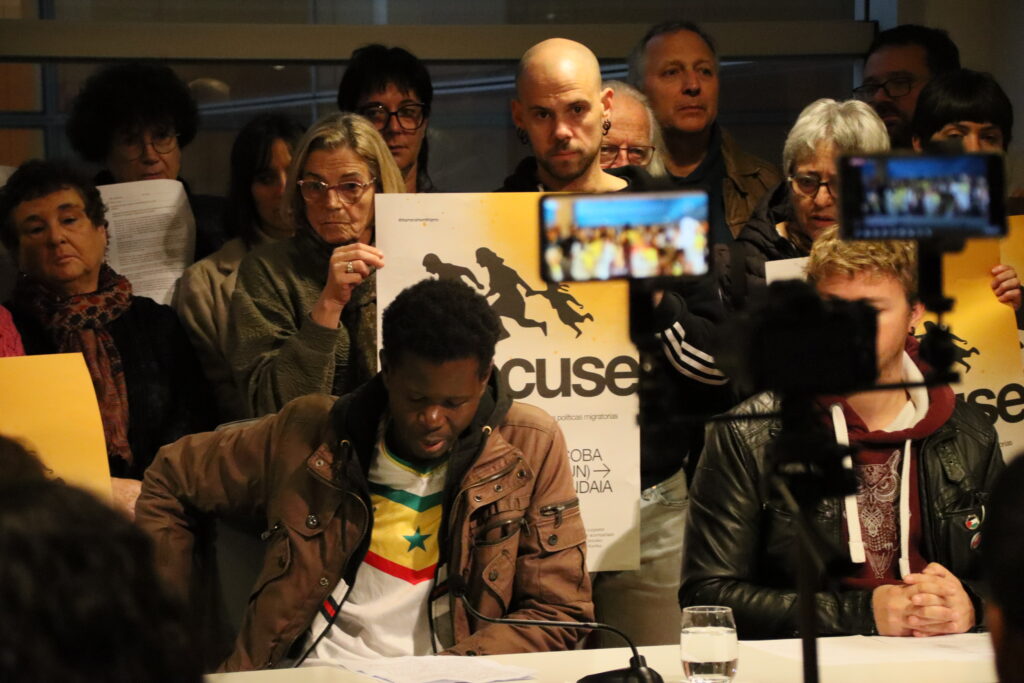
.jpg)

